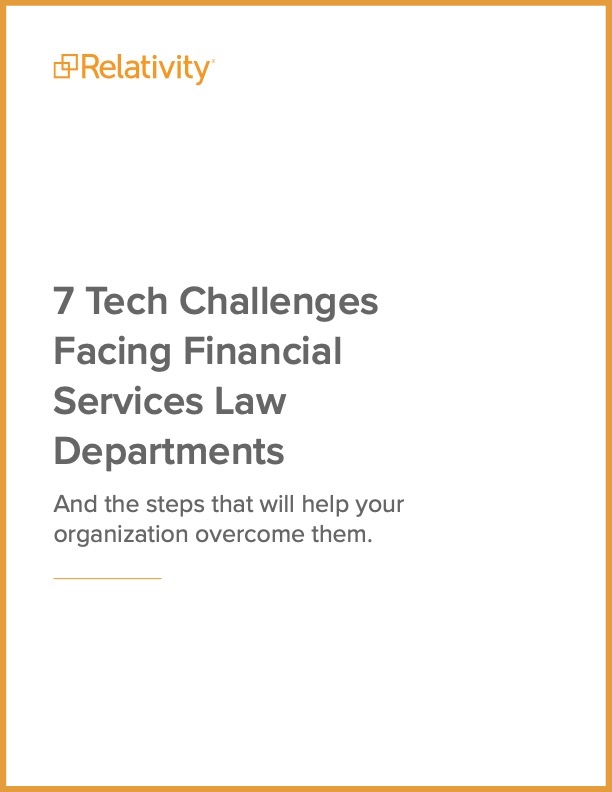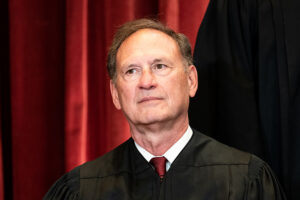Screencap
from
WPLG
10
YouTube
channel
In
a
new
dystopian
hell
unleashed
upon
the
country
from
—
*checks
notes
unnecessarily*
—
Florida,
a
judge
has
allowed
lawyers
to
use
a
virtual
reality
presentation
to
show
an
immersive
representation
of
the
defendant’s
perspective
in
a
—
*checks
notes
unnecessarily
again*
—
Stand
Your
Ground
case.
It’s
like
a
VR
mod
for
Grand
Theft
Auto
but
real!
Defendant
owns
an
event
venue
and
claims
that
violence
broke
out
at
a
wedding
and
when
he
tried
to
break
it
up,
a
crowd
of
revelers
cornered
him
to
yell
at
him
and
he
decided
to
pull
a
gun
on
them.
Making
this
less
a
First-Person
Shooter
(FPS)
than
a
First-Person
Threatening
Shooter
(FPTS).
Which
might
sound
like
aggravated
assault
with
a
deadly
weapon
trial
and
an
affirmative
defense
of
acting
in
self-defense,
but
Florida
short-circuits
that
process
with
a
Stand
Your
Ground
law
that
allows
the
judge
to
make
a
preemptive
determination
that
if
the
defendant
“reasonably
believes
that
using
or
threatening
to
use
such
force
is
necessary
to
prevent
imminent
death
or
great
bodily
harm,”
the
charge
can
get
tossed
without
a
trial.
During
the
testimony
of
the
defense
expert…
wait,
hold
on.
What
kind
of
“expert”
is
there
for
“this
is
an
acceptable
time
to
wave
a
gun
at
people”
testimony?
Do
you
need
to
do
post
baccalaureate
work
for
that
gig?
Not
knocking
expert
testimony
generally,
but
usually
it’s
focused
on
complex
questions
of
science
or
methodology
and
not
“in
my
professional
opinion
as
an
employee
of
the
defense,
I
believe
the
defendant
was
justified
in
doing
the
exact
thing
he’s
charged
with
doing.”
Anyway,
the
defense
expert
testified
about
the
defendant’s
account
of
events
and
had
a
visual
aide
to
go
with
it.

Screencap
from
WPLG
10
YouTube
channel
“I
want
my
MTV”
he’s
presumably
yelling.
This
is
goofy
and
dumb,
seeing
as
it
adds
nothing
probative
to
a
standard
testimonial
account.
It’s
still
the
defendant’s
account
of
events
just
rendered
like
it’s
The
Sims
4
Florida
Man
Expansion
Pack.
Seriously,
someone
please
take
these
video
clips
and
superimpose
the
original
Sims
sounds
on
them.
But
while
the
third-person
perspective
is
unnecessary,
it’s
the
first-person
account
that
introduces
an
overwhelming
prejudicial
effect
by
placing
the
viewer
—
in
this
case
the
judge
and
in
a
future
nightmare
scenario
a
jury
—
in
the
place
of
the
defendant
living
out
the
events
from
sole
perspective
of
the
defendant.

Screencap
from
WPLG
10
YouTube
channel
There
is,
the
defense
hopes,
a
closing
of
psychological
distance
and
a
sharp
uptick
in
empathy
if
the
fact-finder
is
placed
behind
the
defendant’s
eyes
and
can
really
see
8-bit
representations
of
stereotypes
closing
in
on
them.
To
the
judge’s
credit,
he
seems
skeptical
about
handing
this
evidence
to
the
jury,
but
given
the
Florida
law,
it
might
not
even
come
to
that.
We
trust
judges
to
be
able
to
intellectually
wall
off
evidence
that’s
more
prejudicial
than
probative,
but
the
trick
of
this
tactic
is
to
confuse
the
brain
into
failing
to
see
anything
prejudicial
about
this
at
all.
And
will
the
state
have
an
opportunity
to
animate
its
own
counter-narrative?
Outside
of
CBS
Primetime,
law
enforcement
doesn’t
have
infinite
computing
power
and
plucky
out-of-work
game
designers
in
darkened
rooms
back
at
the
station.
GameRant
has
an
appropriately
technophilic
response:
This
particular
demonstration
likely
would
have
been
deemed
impractical
without
the
wireless
capabilities
of the
Meta
Quest
VR
line.
Meta
Quests
can
be
simply
put
on
and
immediately
used
anywhere,
whereas
other
VR
headsets
require
a
wired
connection
to
a
PC,
and
possibly
external
trackers
to
determine
where
a
user
is
standing
and
looking.
With
the
potential
to
create
empathy
and
understanding
for
a
defendant’s
perspective
and
mindset
through
VR
experiences
like
this
one,
it’s
possible
that
Meta
could
see
widespread
adoption
of
its
headsets
by
legal
teams
in
the
future.
The
deck
is
improperly
stacked
against
defendants
in
a
whole
host
of
ways
but
this
ain’t
it.
Public
defenders
aren’t
getting
Quest
goggles
and
laid
off
game
designers
any
time
soon.
This
just
hands
affluent
defendants
a
tool
for
creating
a
computer-generated
first-person
representation
of
their
story
without
direct
refutation
while
poor
defendants
are
drawing
stick
figures
on
napkins.
It
may
well
“create
empathy
and
understanding
for
a
defendant’s
perspective”
but
in
all
the
ways
the
justice
system
is
designed
to
weed
out.
Court
is
supposed
to
be
boring
because
it’s
supposed
to
sap
the
highly
charged
events
of
emotion
for
dispassionate
evaluation.
It’s
why
victims’
rights
initiatives
are
problematic
too…
we
don’t
let
victims
level
vigilante
justice
for
a
reason.
This
tech
just
endeavors
—
and
if
the
graphics
were
more
Apple
Vision
Pro
than
Meta
Quest
2
it
might
succeed
—
to
tilt
the
passions
toward
one
side
of
the
story.
It’s
also
not
necessarily
going
to
help
out
the
defendants
as
much
as
idealists
might
hope.
VR
will
create
empathy
and
understanding
for
whichever
side
has
the
money
to
exploit
it.
The
state
may
not
have
the
funds
to
do
this
in
every
case,
but
rich
victims
can.
Whether
that
works
its
way
into
criminal
cases
or
skews
later
civil
trials,
there’s
profound
danger
for
the
justice
system
in
this
tech.
I’m
one
of
the
people
who
believes
in
wearable
tech,
and
I
think
future
iterations
of
these
goggles
—
especially
the
too-expensive-right-now
Vision
Pro
—
have
a
place
in
legal
work
as
confidential,
eyes-only
workspaces
and
expansive
canvasses
for
review.
They
might
even
fit
in
courtrooms
if
they
allowed
exploration
of
mutually
stipulated
upon
settings.
But
a
pre-trial
Stand
Your
Ground
hearing
where
the
defendant
tries
to
establish
that
their
subjective
account
of
events
inspired
reasonable
fear
is
the
most
Kafkaesque
possible
use.
 Joe
Joe
Patrice is
a
senior
editor
at
Above
the
Law
and
co-host
of
Thinking
Like
A
Lawyer.
Feel
free
to email
any
tips,
questions,
or
comments.
Follow
him
on Twitter or
Bluesky
if
you’re
interested
in
law,
politics,
and
a
healthy
dose
of
college
sports
news.
Joe
also
serves
as
a
Managing
Director
at
RPN
Executive
Search.


















